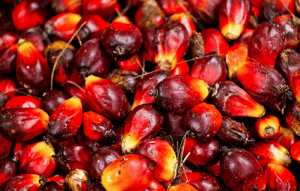Ghana government set to license oil palm business
 Regulating the cultivation, pricing and quality of palm oil was a crucial intervention to ensure the sustainability of the oil palm sector in Ghana.
Regulating the cultivation, pricing and quality of palm oil was a crucial intervention to ensure the sustainability of the oil palm sector in Ghana.
Hence, the Oil Palm Development Association of Ghana (OPDAG) under the auspices of Tree Crop Development Authority (TCDA) is set to regulate the oil palm sector to help transform and boost the economy through trading.
The effort is expected to enhance market access for workers in the palm oil value chain in producing districts, would also ensure that finished products meet both local and international market standards.
Mr Paul Amaning, the National Organizer of OPDAG, announced this during a national tour with farmers and oil Palm millers in the Central Region to deliberate on ways to safeguard the oil Palm plantation industry in the country to attract international markets.
“The license would help unveil bad practitioners of oil Palm plantation to enable increase incomes of smallholder farmers and processors to generate economic growth and jobs”, he indicated.
He noted that substantial part of Ghana’s palm oil imports could be sourced locally from artisanal palm oil producers, if they met the quality requirements of both industrial users and palm oil exporters.
The National Organizer charged the participants to register their businesses to meet the requisite standards in order to enhance trading and also provide jobs to reduce unemployment and increase standard of living in the country.
“OPDAG the mouth piece of Ghana’s oil palm sector, is a private sector industry association with the focus of promoting socially responsible, ecologically and economically sustainable production, value addition and trading of oil palm in Ghana,” he added.
Mr Aaron Sagoe, the Central Regional Chairman of OPDAG applauded the government and the initiators of the license for putting efforts together to protect the oil Palm sector.
He explained that the license was good as it would serve as a guild to oil Palm producers and farmers to ensure good manufacturing practices of palm oil to earn higher sales locally and internationally.
Mr Sagoe encouraged all to collaborate to pursue the agenda of improving the oil Palm sector in the country.
He said a regulatory Board could monitor activities of palm oil importers adding that there was no need for the importation of crude palm oil into the country as Ghana was capable of producing enough quantity of the produce for local industries.
Source: GNA
